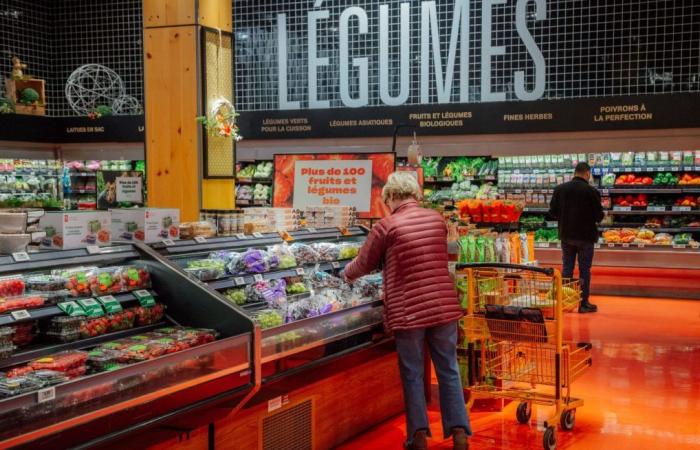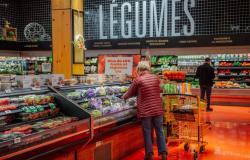
Quebec consumers are poorly equipped when it comes to choosing foods with a low ecological footprint, shows a new study from Laval University.
Around half of them, or 48%, wrongly believe that food transportation is the most influential factor on the production of greenhouse gases (GHG) in the food sector.
“When we ask consumers which stage in the life of your food product contributes the most to GHG emissions, consumers tell us, “it’s transport”,” commented the head of the study, Professor Laure Saulais. .
“They are focused on that, whereas in the vast majority of cases, it is production which is responsible for the majority of the emissions which are linked to the product. »
The research team from the Faculty of Agricultural and Food Sciences interviewed a thousand adults living in Quebec to measure their knowledge and beliefs about the ecological footprint of food. “We wanted to know what consumers’ needs would be in order to make the right choices, that is to say choices that have a lower environmental impact,” explained M.me Sunny.
Responses to the online questionnaire revealed that participants had a low level of knowledge on the subject. The average score obtained was 6.8 out of 16, a result comparable to that observed in other countries where similar studies were carried out.
Previous studies have shown that transportation generates only a tenth of the GHG emissions of the entire food sector. For beef, this percentage is barely 0.5%.
“There has been a lot of public communication on the effect of transport, and not only in terms of food,” recalled Ms.me Saulais as a hypothesis to explain this belief well anchored in the population. Ultimately, it’s a bit like the tree that hides the forest. »
Ultimately, she added, the effect of transportation “is really not much for a lot of products compared to the impact that production has.”
We can also assume that “transport” is an easier concept for the population to grasp than “production”. Imagining the effect of transporting strawberries from California to the corner grocery store is easier to imagine than the effect of how those strawberries were produced.
Other researchers have also testified to this “disconnect” between consumers and their food, recalled M.me Sunny.
“We are not saying that transport has no impact, but certainly that it has much less in proportion,” she said. This is not the first thing that should be done on the issue of GHG emissions. »
From this erroneous belief arise the solutions recommended by survey participants to reduce the environmental impact of their diet: 37% of participants believe that “eating locally” is one of the three most effective solutions to reduce this impact, and 28 % selected “consume less imported foods”.
In fact, says Mme Saulais, the two most effective measures are reducing the consumption of red meat and reducing food waste.
Consumers keen to reduce the environmental footprint of their food should therefore pay more attention to the type of food they consume and their method of production rather than their origin, said the researcher.
But obviously, if we have to choose between a food that comes from Quebec and the same food produced identically in another country, the local product is preferable, she adds.
Different countries are currently working on the development and adoption of labeling which would make it possible to establish the ecological footprint of each food, recalled Ms.me Saulais. Although price will likely always have the biggest influence on consumers’ choices, adding such labeling would also allow them to compare foods based on their footprint.
Mme Saulais hopes the Canadian government will launch a similar process, rather than leaving it to food producers to promote the ecological merits of their products.
“The idea would be to have a standardized information system that allows all products to be compared, then we would do our grocery shopping with full knowledge of the facts,” she concluded.
The findings of this study were published in the scientific journal Appetite.





